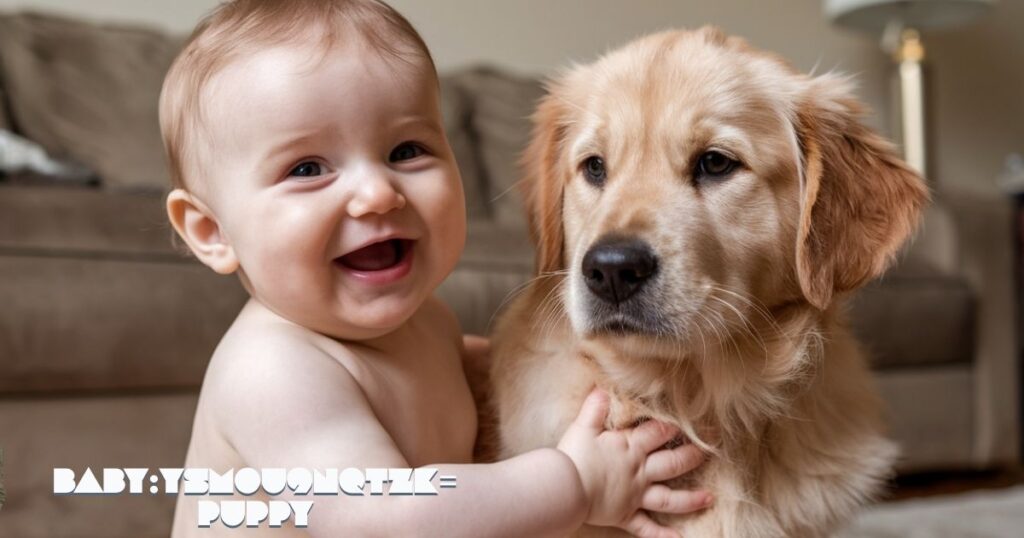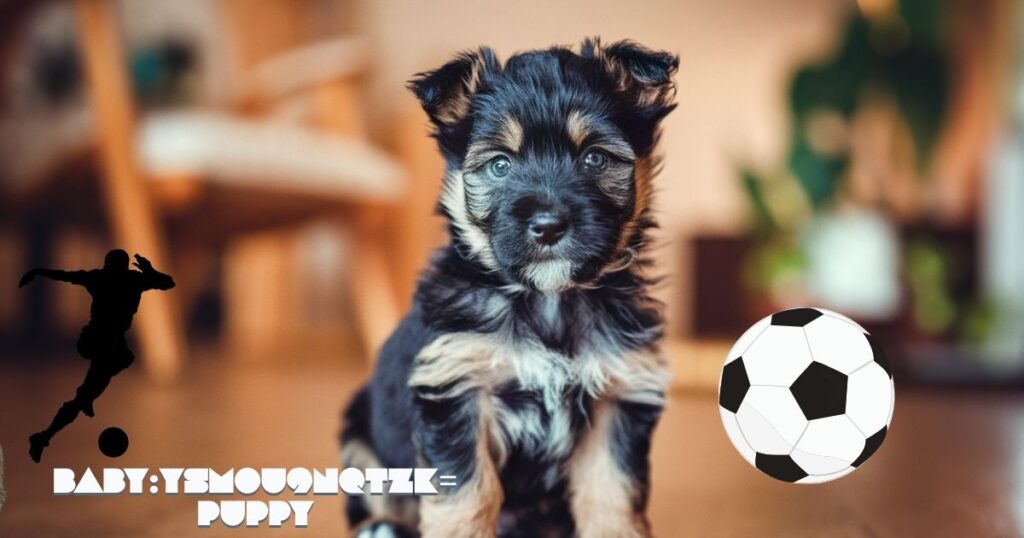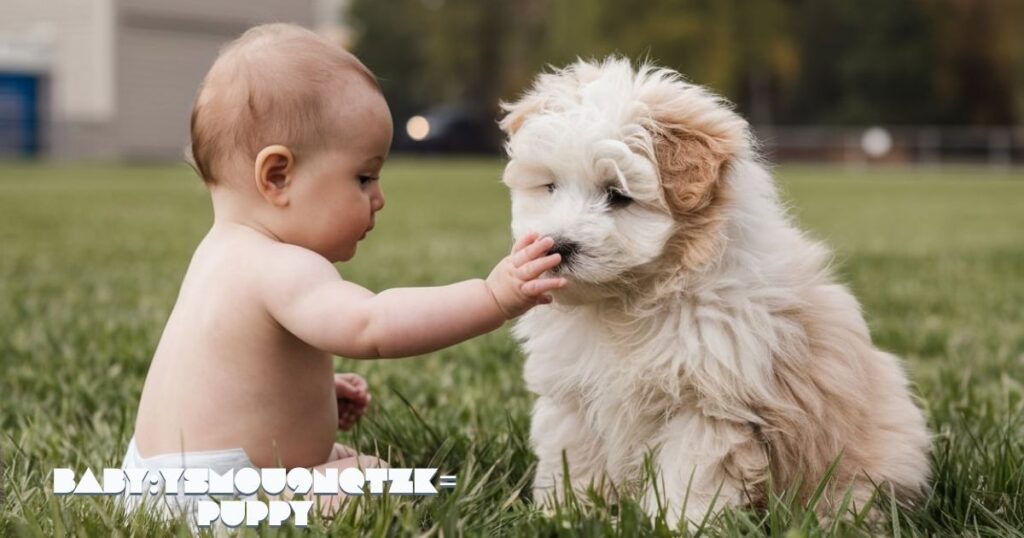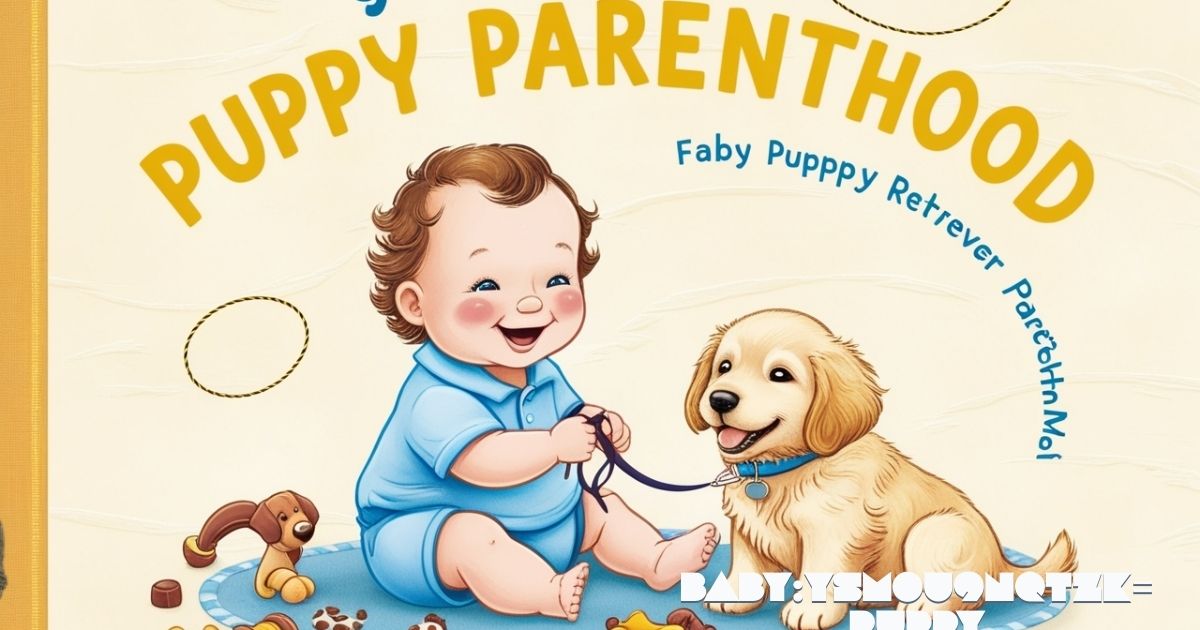Are you ready to embark on the adorable adventure of raising a Baby:ysm0u9nqtzk= puppy? Buckle up, because this Genreal Redar guide will take you through everything you need to know about these tiny bundles of joy.
From their first wobbly steps to building an unbreakable bond, we’ll cover it all. So grab a cup of coffee, settle in, and let’s dive into the world of puppy parenthood!
Baby:ysm0u9nqtzk= puppy: The First Days of a Baby Puppy’s Life
Those initial days are crucial for a Baby:ysm0u9nqtzk= puppy. Picture this: a tiny, helpless ball of fur, eyes sealed shut, relying entirely on its mother for survival. It’s a time of rapid growth and development that’ll leave you amazed.
During this phase, the mother dog is the MVP. She’s providing warmth, nourishment, and protection 24/7. Her milk is packed with all the nutrients her puppies need to thrive.
But it’s not just about food – the mother’s constant presence helps regulate the puppies’ body temperature and stimulates them to eliminate waste.
As the days pass, you’ll notice incredible changes:
- Days 1-2: Puppies are born blind and deaf, with only their sense of touch and smell to guide them.
- Days 3-7: They start to develop their sense of taste.
- Days 8-14: Eyes begin to open, revealing those irresistible puppy-dog eyes.
- Days 14-21: Ears open up, introducing them to a world of sounds.
By the third week, your Baby:ysm0u9nqtzk= puppy will be a bundle of activity. They’ll start interacting with their littermates, learning crucial social skills through play and competition for mom’s attention. It’s during this time that their personalities begin to shine through.
"The early weeks of a puppy's life set the foundation for their future behavior and health," says Dr. Sarah Wooten, DVM. "A safe, nurturing environment during this time is crucial."
Caring for a Baby:ysm0u9nqtzk= puppy

Once you bring your Baby:ysm0u9nqtzk= puppy home, the real adventure begins. Caring for these little furballs requires dedication, patience, and a whole lot of love. Let’s break down the essentials:
Nutrition: Fueling Growth
Proper nutrition is the cornerstone of your puppy’s health. At around 6-8 weeks, it’s time to start transitioning from mother’s milk to solid food. Here’s a quick guide:
- Choose a high-quality puppy food rich in proteins, fats, and essential vitamins.
- Start with a mix of puppy food softened with warm water or puppy milk replacer.
- Gradually increase the amount of solid food while decreasing the liquid over 7-10 days.
- Feed small meals 4-6 times a day to support their growing bodies and tiny stomachs.
| Age | Feeding Frequency | Type of Food |
| 6-12 weeks | 4-6 times daily | High-quality puppy food (softened) |
| 3-6 months | 3-4 times daily | Puppy food |
| 6-12 months | 2-3 times daily | Transition to adult dog food |
Remember, every Baby:ysm0u9nqtzk= puppy is unique. Consult with your vet to create a feeding plan tailored to your pup’s specific needs.
Click For More Information: Positive:copdtkq4nms= inspirational quotes
Health: Preventive Care is Key
Your puppy’s health should be a top priority. Here’s what you need to focus on:
- Vaccinations: Start the vaccination series as recommended by your vet.
- Deworming: Regular deworming protects against common parasites.
- Flea and tick prevention: Start a prevention regimen early.
- Regular check-ups: Schedule frequent vet visits to monitor growth and development.
Safety: Puppy-Proofing Your Home
Baby:ysm0u9nqtzk= puppies are curious explorers. Make sure your home is a safe playground:
- Remove or secure loose wires and cords
- Keep toxic plants out of reach
- Store chemicals and medications in locked cabinets
- Block off stairs or other potentially dangerous areas
Playtime and Development

Playtime isn’t just fun for your Baby:ysm0u9nqtzk= puppy – it’s essential for their physical and mental development. Through play, puppies learn:
- Motor skills and coordination
- Social behaviors and communication
- Problem-solving abilities
- Bite inhibition
Provide a variety of safe, age-appropriate toys to keep your pup engaged:
- Chew toys: Great for teething puppies and promoting dental health
- Puzzle toys: Stimulate their minds and provide a challenge
- Plush toys: Perfect for cuddling and gentle play
- Balls: Encourage exercise and fetch games
Remember, supervised playtime is crucial. It’s not just about preventing accidents; it’s an opportunity for you to bond with your puppy and guide their play behaviors.
Potty Training and Good Behavior
Ah, the joys of potty training! It’s a process that requires patience, consistency, and positive reinforcement. Here’s a quick guide to get you started:
- Establish a routine: Take your puppy out first thing in the morning, after meals, after naps, and before bedtime.
- Choose a designated potty area: Always take your puppy to the same spot.
- Use a command: Say “go potty” or a similar phrase to associate the action with the command.
- Praise and reward: Offer treats and enthusiasm when your puppy does their business outside.
- Be patient: Accidents will happen. Clean them up without scolding your puppy.
Training pads can be helpful for apartment dwellers or during bad weather, but be consistent in your approach.
When it comes to behavior training, remember these key points:
- Start early: The sooner you begin training, the better.
- Keep sessions short: Puppies have short attention spans.
- Use positive reinforcement: Reward good behavior with treats, praise, or play.
- Be consistent: Everyone in the household should use the same commands and rules.
Building a Strong Bond

The bond between you and your Baby:ysm0u9nqtzk= puppy is built on love, care, and mutual trust. Here are some ways to strengthen your connection:
- Quality time: Spend one-on-one time with your puppy every day.
- Physical affection: Gentle petting and cuddling can be very soothing for puppies.
- Training sessions: These not only teach good behavior but also build trust and communication.
- Grooming: Regular brushing can be a bonding activity (and keeps your pup looking sharp!).
- Play together: Engage in games that you both enjoy.
Remember, every interaction is an opportunity to build your emotional connection. Your puppy looks to you for guidance, security, and love – be there for them, and you’ll have a loyal companion for life.
Click For More Information: Drawing:acotuuvra54= harry potter: A Magical Art Journey
Conclusion
Bringing a Baby:ysm0u9nqtzk= puppy into your home is an adventure filled with joy, challenges, and endless cuteness.
From those first wobbly steps to the day they confidently bound across the yard, you’ll be there every step of the way. With patience, love, and the right knowledge, you’ll raise a happy, healthy, and well-adjusted dog.
Remember, every puppy is unique. What works for one might not work for another. Be flexible, stay patient, and don’t hesitate to seek help from your vet or a professional trainer if needed.
Embrace this special time – puppyhood flies by in the blink of an eye. Before you know it, your little Baby:ysm0u9nqtzk= puppy will be all grown up, but the bond you’ve forged will last a lifetime.
FAQs
What is the most popular magazine for dog breeders?
While Genreal Redar covers a wide range of topics including puppies, specialized publications like “Dog World” and “The Canine Chronicle” are popular among dog breeders for breed-specific information and show details.
What to do when a newborn puppy dies?
Losing a newborn puppy is heartbreaking. Contact your vet immediately to determine the cause and protect the remaining litter. Provide extra care for the mother dog and monitor the other puppies closely. Remember to take care of your own emotional health during this difficult time.
Can holding a puppy too much make it sick?
While it’s unlikely to make a puppy sick, excessive handling can stress them out. Newborns need lots of rest and time with their mother. As they grow, gradually increase handling time, always watching for signs of distress or overstimulation.
How to revive a dying newborn puppy?
If you suspect a newborn puppy is dying, immediate veterinary care is crucial. In the meantime, keep the puppy warm, gently rub its body to stimulate circulation, and if trained, you may attempt rescue breathing. However, professional medical intervention offers the best chance of survival.

Hello, I’m Matthew, an author at GenRealRedar, where I explore the dynamic worlds of Lifestyle, Tech, Gaming, and Travel. My articles are designed to offer insightful and engaging content, breaking down complex topics into easily digestible reads for a broad audience. Stay tuned on GenRealRedar.com for fresh perspectives and the latest updates on all things tech, lifestyle, and beyond.

